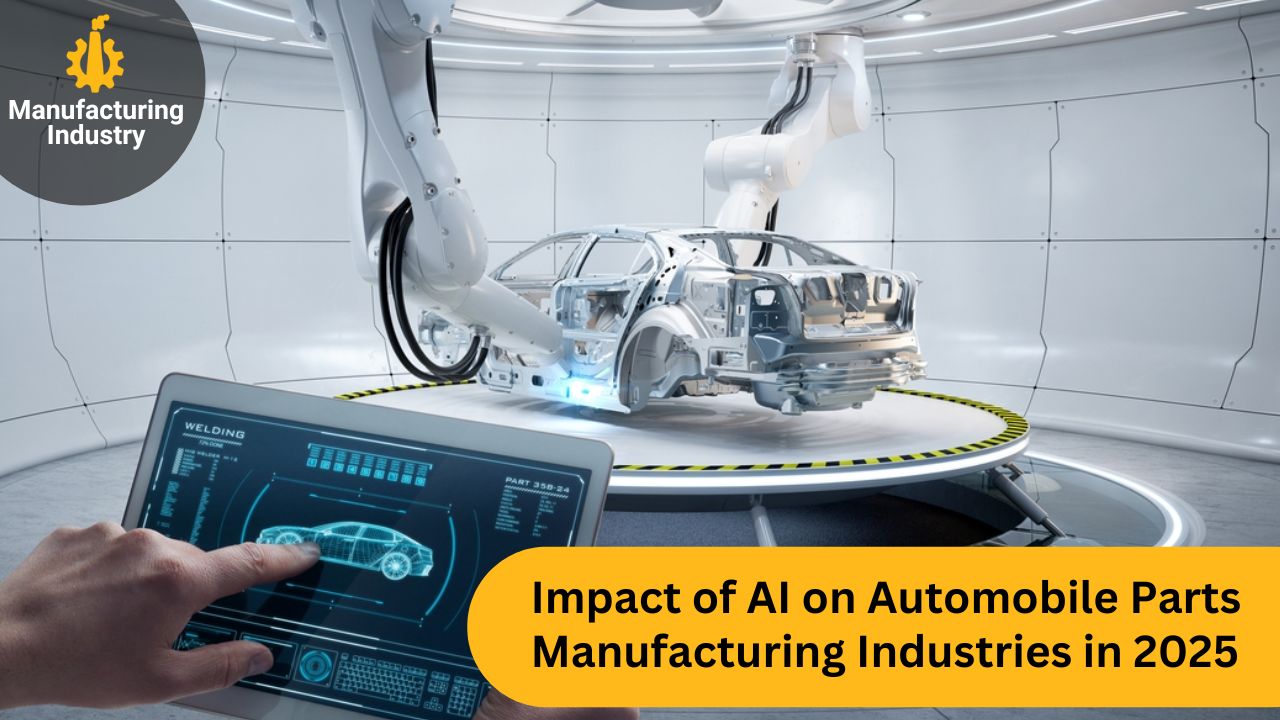
The global industrial landscape is constantly evolving with the power of artificial intelligence (AI). In 2025, AI is significantly impacting the design, manufacturing, distribution, sales, and maintenance of automobile parts. Manufacturers are incorporating AI-based technologies in their processes, and these technologies are also improving manufacturing efficiency, quality control, predictive maintenance, and intelligent scheduling of supply chain processes. Here’s how AI will impact automobile parts manufacturing industries in 2025.
Smart Automation for Smoother Production
AI robotics and automation have completely changed the way automobile parts are manufactured. In 2025, smart factories are now a reality, where intelligent machines equipped with first-rate computer vision and advanced deep learning algorithms have taken manufacturing to a new level of precision and flexibility. In the automotive parts sector, robots are taking over labor-intensive jobs with almost triple the accuracy and speed, making humans almost non-essential in the manufacturing process.
While this kind of automation frees up labor for more value-added tasks, in 2025 there are further automation qualities available in the world of Computer Numerical Control (CNC) machines. Today, a CNC machine can intelligently adjust cutting speeds, among other features.
Predictive Maintenance and Lower Downtime
One of the biggest benefits of AI in manufacturing in 2025 is predictive maintenance. Relying on scheduled, time-based maintenance is slowly being replaced with AI systems that can monitor machines in real time. For example, AI can use vibration, temperature, acoustic data, etc., to predict the likelihood that a machine component will fail at a certain time.
Predictive maintenance can lead to huge decreases in unplanned downtime. By minimizing failure and allowing for timely preventive measures, organizations save costs, operate at peak efficiencies, and, on average, prolong the lifespan of manufacturing equipment. This can be especially beneficial for manufacturers in reducing costs and maintaining constant production schedules to meet an increase in demand.
Improved Quality Control and Defect Detection
AI makes a huge difference in quality control. When manufacturers of automobile parts manufacturing industries produce automobile parts, image recognition systems and machine learning algorithms can detect slight (microscopic) defects. By 2025, modern vision systems with AI will be able to identify even the most minute deviation in casting, molding, or welding.
These defect detection systems reduce the possibility of delivering defective products to a customer. The improvement of product quality can continue by feeding expected defect data back into the production process. Manufacturers get the chance to identify defect patterns, trace them to their root causes, and make changes as needed during production. This can mean higher quality outputs and, ultimately, happier paying customers.
Enhanced Supply Chain and Inventory Management
Artificial intelligence impacts more than just the factory floor, and it continues to contribute positively to supply chain and inventory management. By 2025, AI analytical tools facilitate demand anticipation, supplier performance monitoring, and real-time logistics optimization, which enables just-in-time inventory approaches that reduce surplus stock and storage costs.
In addition, AI will allow dynamic routing for any parts delivery that will react to traffic congestion, adverse weather, or geopolitical disturbances to guarantee necessary prompt delivery. In a global economy where supply delays can have an outsized impact on production schedules, that flexibility is a significant competitive advantage.
Customization and Innovation at Scale
AI is also enabling manufacturers to satisfy market demands for customization without losing the advantage of scalability. By 2025, generative design supported by AI algorithms will dominate, facilitating the research and examination of thousands of design variations in a matter of minutes to produce parts that are lighter, stronger, and more efficient.
Successfully, AI will also analyze categorical customer preferences to determine if production components can be customized for a certain model or region, thus leading to mass customization. The ability to easily create custom parts that improve a vehicle’s performance, safety, or visual appearance is increasingly evident in a world where development timelines shrink exponentially.
Staff Writer
Staff Writer at Manufacturing Industry
Conclusion
As we progress through 2025, the impact of artificial intelligence on the automobile parts manufacturing sector is nothing short of revolutionary. Intelligent automation, predictive maintenance, enhanced quality control, and agile supply chain management are just some of the applications that should lead to the sector being more efficient, cheaper, and higher quality. The manufacturers that adopt AI technologies will not only streamline their business operations but will also continue to have competitive advantages in a competitive marketplace. The future ahead is definitely intelligent, adaptive, and undeniably AI-driven.